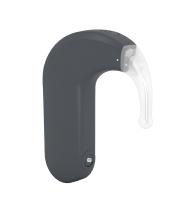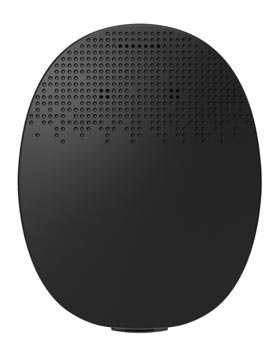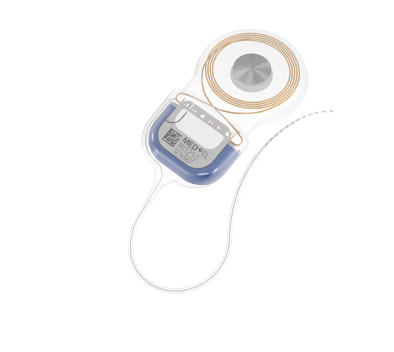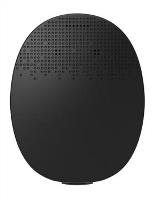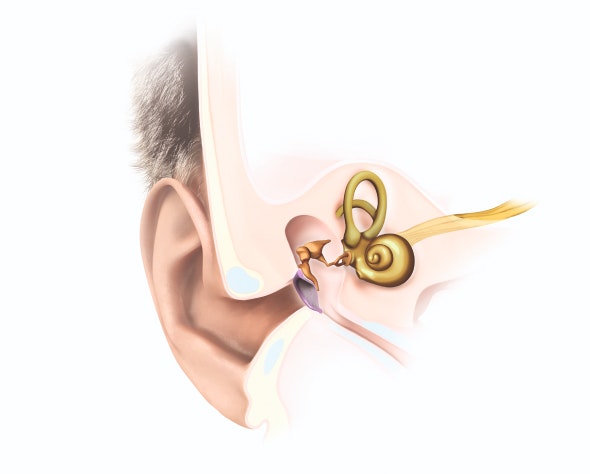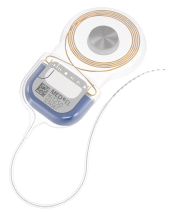Cochlear Implants: About This Life-Changing Technology
Cochlear implants have helped hundreds of thousands of people worldwide hear and understand—even when hearing aids could not. Cochlear implants may be able to help open up the world of sound to you or your loved one.

How Cochlear Implants Differ From Hearing Aids
Hearing aids only amplify sound, but this may not be effective if the inner ear is damaged. Unlike hearing aids, cochlear implants bypass the inner ear to directly stimulate the auditory nerve.
This means a cochlear implant may be able to help restore hearing to you or your loved one—even if a hearing aid cannot.
Our cochlear implants are designed to help people better understand speech and experience the closest to natural hearing.
Benefits of Cochlear Implants
- Easier to socialise with family and friends
- Better hearing in noisy settings, like restaurants
- Improved listening on the phone

How Does a Cochlear Implant Work?
People experience severe-to-profound sensorineural hearing loss when tiny hair cells in the inner ear are damaged. As a result, they cannot detect sounds properly. A cochlear implant bypasses these damaged hair cells and sends electric signals to the brain where they are interpreted as sound.
Watch this video to learn how a cochlear implant works.

Is a Cochlear Implant Right for Me?
Cochlear implants are used to treat severe-to-profound sensorineural hearing loss. You or your loved one will need to meet with hearing professionals to find out if a cochlear implant is the right solution.
Based on hearing, physical health, and imaging assessments, hearing professionals will recommend a solution. These services are available at clinics in every state in Australia and both islands in New Zealand through both public and private health systems.
How Much Does a Cochlear Implant Cost?
Many people are surprised to learn that cochlear implants are available at no or minimum cost within Australia. In fact, a cochlear implant is generally less expensive than a hearing aid. More details on cochlear implant funding are available here.
In New Zealand, the Ministry of Health funds cochlear implant services for people who meet a certain criteria. For further information please visit the Ministry of Health.
-6col-full.jpg?auto=format&sfvrsn=f6940440_0)

Your Guide to Cochlear Implant Surgery
After getting a cochlear implant, many people can communicate better, enjoy music, go to mainstream schools or return to their careers. Here are the next steps along the way to better hearing with a cochlear implant.
1
Assessment
2
Before Surgery
3
During Surgery
4
After Surgery
5
Rehabilitation
How do they assess who gets cochlear implants?
Hearing implants can help individuals who can’t benefit from hearing aids. Your journey starts with a visit to an audiologist. They will check your hearing to see if you may benefit from a cochlear implant.
What happens before cochlear implant surgery?
Your surgeon and ENT specialists will walk you through what to expect. They are there to answer any questions you may have and address your concerns about possible risks. You should inform the clinicians about any medications you are taking. You may be given specific eating, drinking, and medication instructions that must be followed before surgery.
To help guide you on your hearing journey, you may want to connect with a Hearpeers Mentor. They can share their personal experiences with a cochlear implant and answer your non-medical questions.
You should ask someone to support you and drive you to and from the hospital on surgery day.
What happens during cochlear implant surgery?
The surgery, which you are given medication to sleep through, is routine and usually lasts one to two hours.
A small area of hair may be shaven, and a tiny incision is made behind the ear. A small “seat” is created in the bone to hold and protect the implant. An opening is created to access the cochlea. The implant’s electrode array is inserted into the cochlea, and the implant is secured in place behind the ear. Last, the skin is closed with stitches.
After surgery, you are monitored in the recovery area, and usually stay in hospital for one night, based on your individual needs and the clinic.
What happens after cochlear implant surgery?
You will be given instructions on how to care for the incision. Your surgeon may schedule a check-up to monitor your incision. Recipients are often back on their feet the next day. Most return to work one to two weeks after surgery.
Four weeks after surgery, your audiologist or clinical specialist performs an initial fitting of the external device, or processor, known as “activation” or “switch on”. You will listen to different beeps via the processor. Based on how they sound, the audiologist will program the processor to meet your specific hearing needs.
Then your processor will be switched on. This is very exciting and is the first time you will hear with your implant! With time and practice, you will get used to this new way of hearing.
Why is aural rehabilitation important after getting a cochlear implant?
Rehabilitation helps both children and adults using cochlear implants to reach their listening potential.
Cochlear implants provide the opportunity for children and adults with hearing loss to hear all of the sounds of speech. Rehabilitation is the process of developing the brain to use that hearing to facilitate improvements in listening and communication skills.
Consistent rehabilitation with an experienced therapist, home practise, and follow-up mapping and monitoring appointments with an audiologist will all play a part in achieve the best hearing outcome.
The Perfect Match
We go further than just offering you the best sound quality—our audio processors have all the features you’re looking for in comfortable designs you’ll love to wear. And our implants are designed to deliver outstanding reliability and MRI safety*, along with a lifetime of better hearing.
And with the help of our apps, you can make hearing with your cochlear implant system even simpler and more convenient.

A Lifetime of Hearing
Getting a cochlear implant is a big decision. Your implant will be with you for many years to come, so it’s important to think about the impact your implant will have, both now and in the future.
At MED-EL, we design everything with the future in mind. Our implants are built for long-term reliability, so you can experience years of uninterrupted hearing. We make it easy to upgrade to the newest audio processor, letting you benefit from the latest technology. Our SYNCHRONY series of implants have outstanding MRI safety* and are covered by our MRI Guarantee, meaning you’re prepared for whatever life brings.
A cochlear implant is a decision for a lifetime, and MED-EL will be with you all the way.
* The SYNCHRONY 2 or SYNCHRONY cochlear implants are MR conditional. Recipients with a SYNCHRONY 2 or SYNCHRONY cochlear implant may be safely MRI scanned at 0.2, 1.0, 1.5, and 3.0 Tesla following the conditions detailed in the instructions for use.
** Unless required for diagnostic reasons.
User Stories
"My quality of life has changed tremendously since my implant"
Connect With a Real User
Our Hearpeers Mentors are cochlear implant recipients and parents of recipients from around the world. They are ready to answer your questions about life with a hearing implant.
Information Request
Would you like to find out more about cochlear implants? Simply request an information package to learn more about how cochlear implants could help you or a loved one hear.


